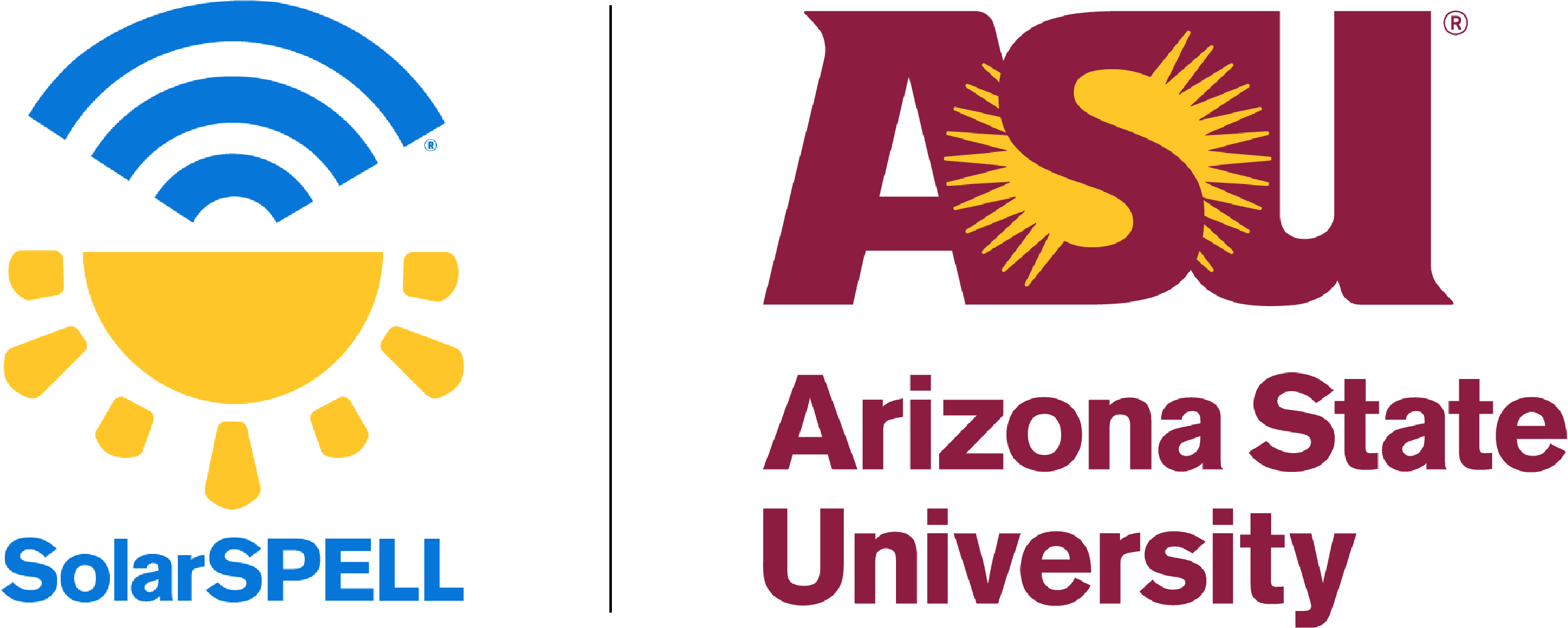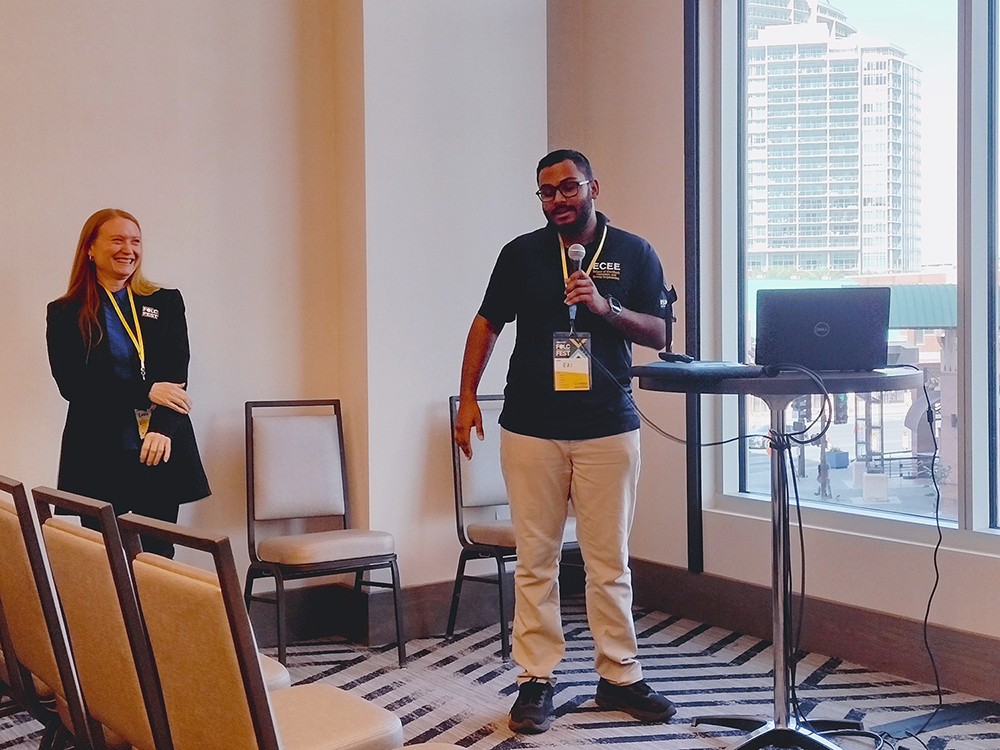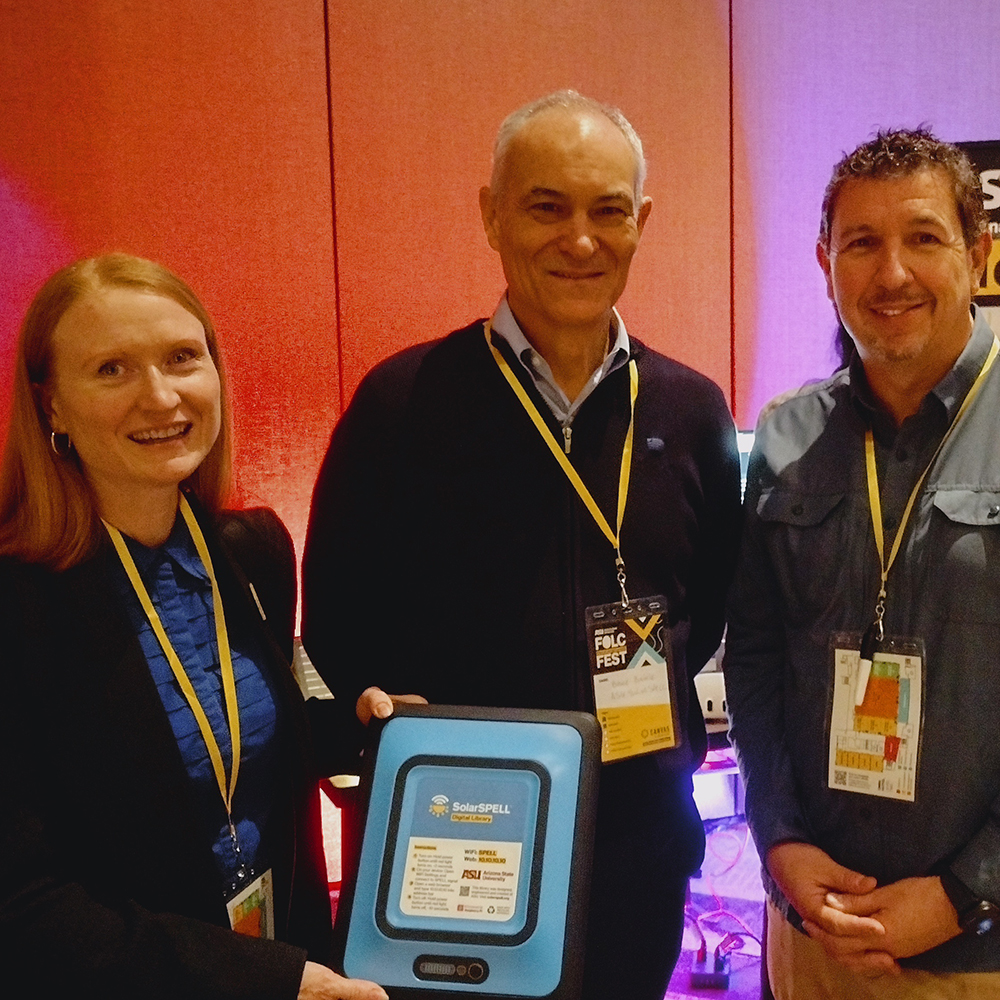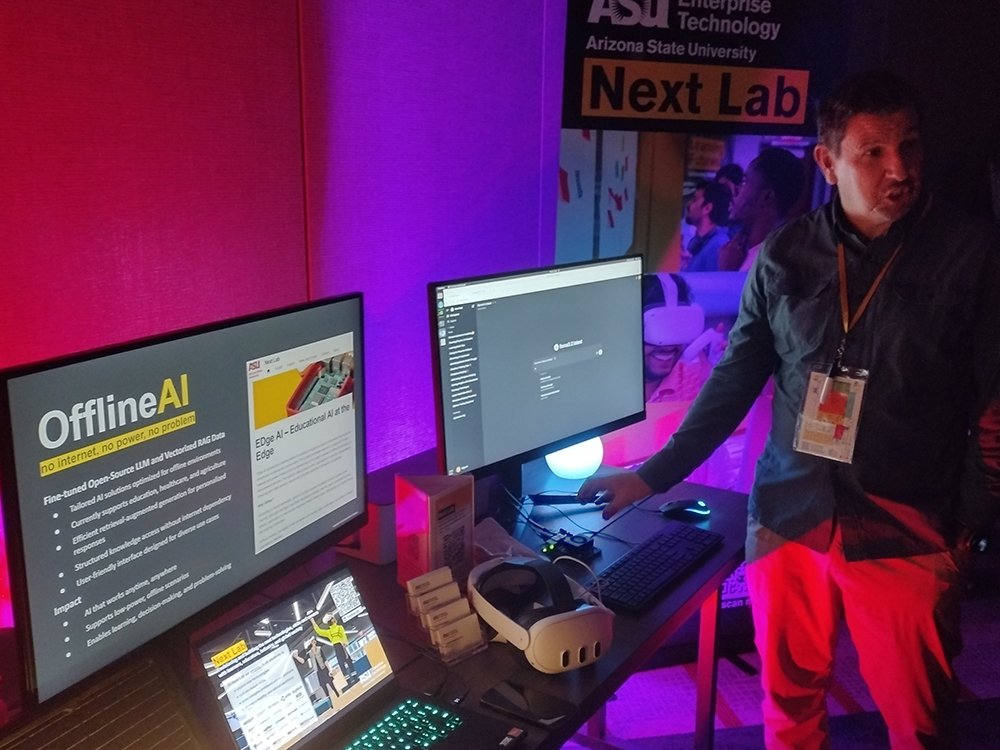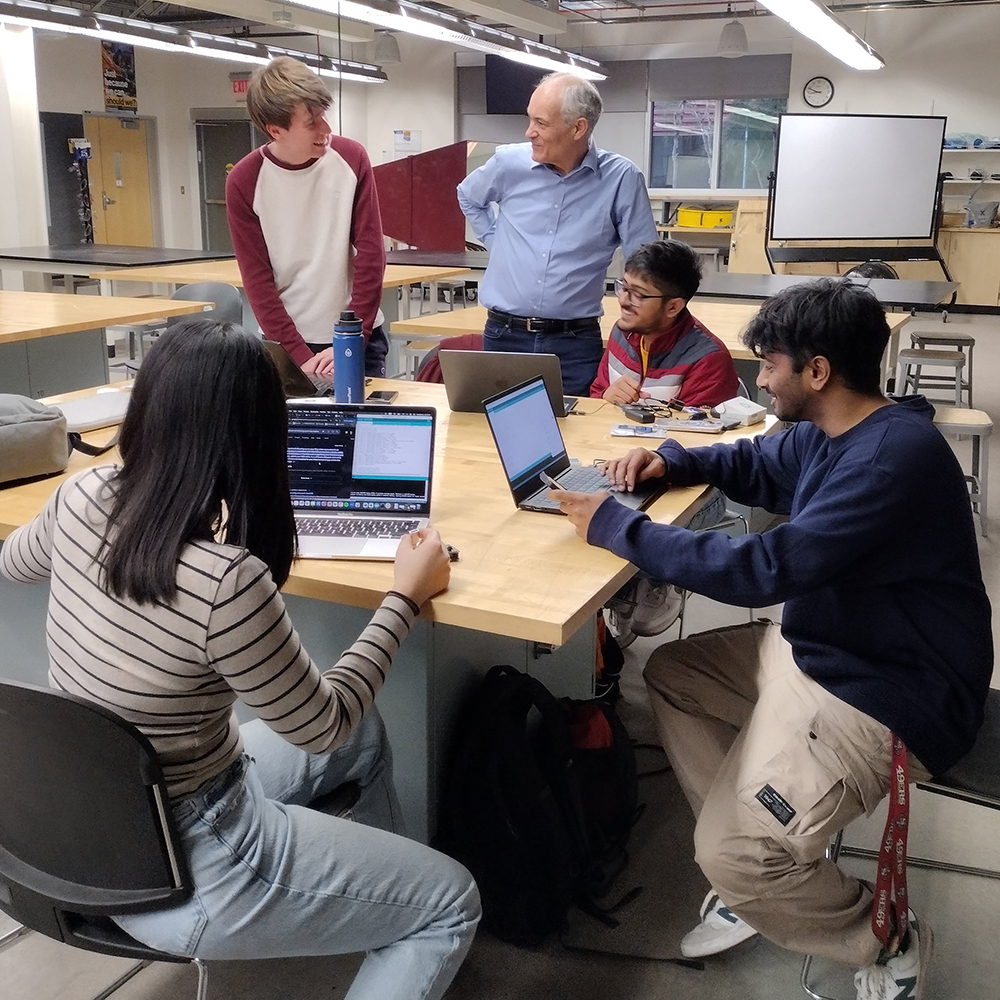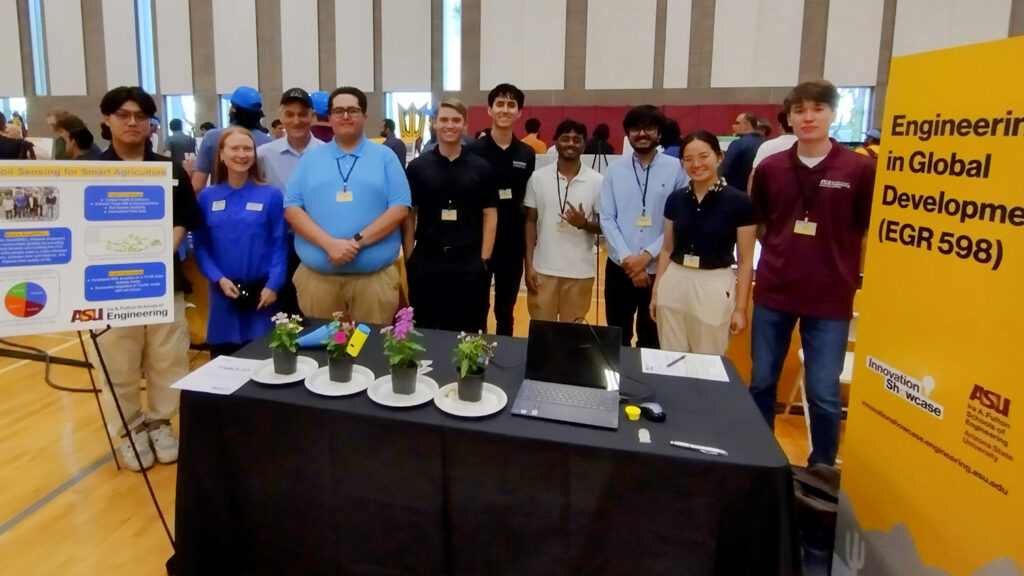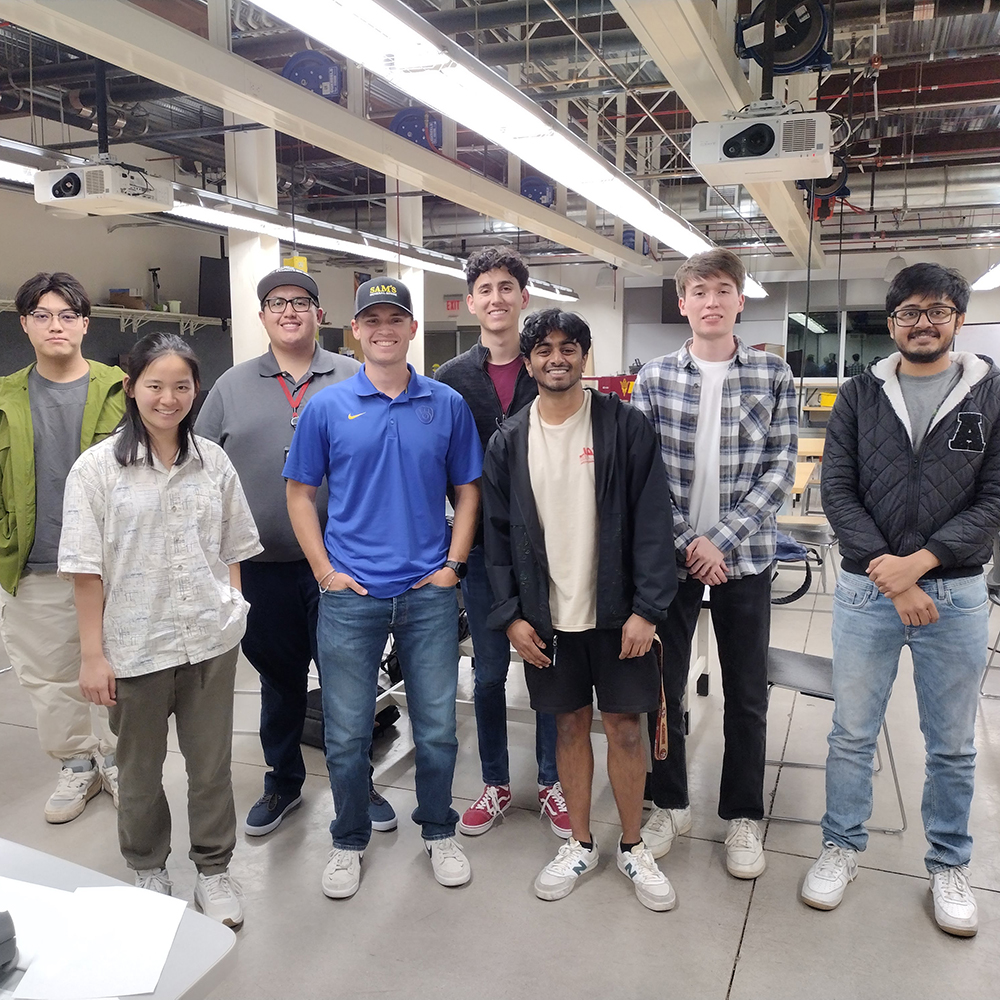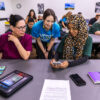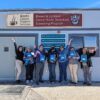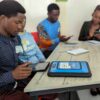Generative AI is already reshaping our collective future — transforming the nature of work, education, healthcare and more. And as the companies leading the charge continue to focus on online users, 50% of the world’s population is again being left out of the equation. Without meaningful access to the internet or strong digital literacy skills, 4.5 billion people are unable to take advantage of this world-altering tool to solve challenges in their communities and improve their quality of life.
The SolarSPELL Initiative is working to change this. Partnering with ASU Next Lab, we are pioneering the creation of offline AI tools for users in remote, off-grid communities.
Starting last fall, ASU students at Next Lab began tackling the challenge of creating an intelligent, conversational learning companion that could function entirely offline and on low-powered hardware (such as the Raspberry Pi microcomputers that power SolarSPELL libraries). The team, composed of student workers Ananya Bhargavi Kodali, Hrushikesh Pandit, Hithesh Rai Purushothama, Sahil Garg, along with executive director Dan Munnerley, has been using Llama, an open source large language model (LLM) released by Meta, as the foundation.
To make it truly useful for offline users, especially those in the Global South, they’ve needed to further train the model on a more locally relevant dataset — in this case, SolarSPELL’s health library collection. And to give the model a better idea of what kinds of questions it may receive and how best to structure responses, Alexa Perry, an ASU DNP student and SolarSPELL health library curator, provided Next Lab with sample questions that nurses in the field might ask, along with ideal responses.
“By running a [large language] model on the device and training it on the database, you can create a chatbot that works offline,” said Hrushikesh Pandit. Dubbed EDgeAI, this tool will help learners find information more efficiently and effectively in the SolarSPELL library and assist them in better understanding complex information.
Not only that, but EDgeAI will allow them to practice AI-ready query skills. “Our main motivation was around equity and accessibility for who can use these resources,” said Ananya Bhargavi Kodali.
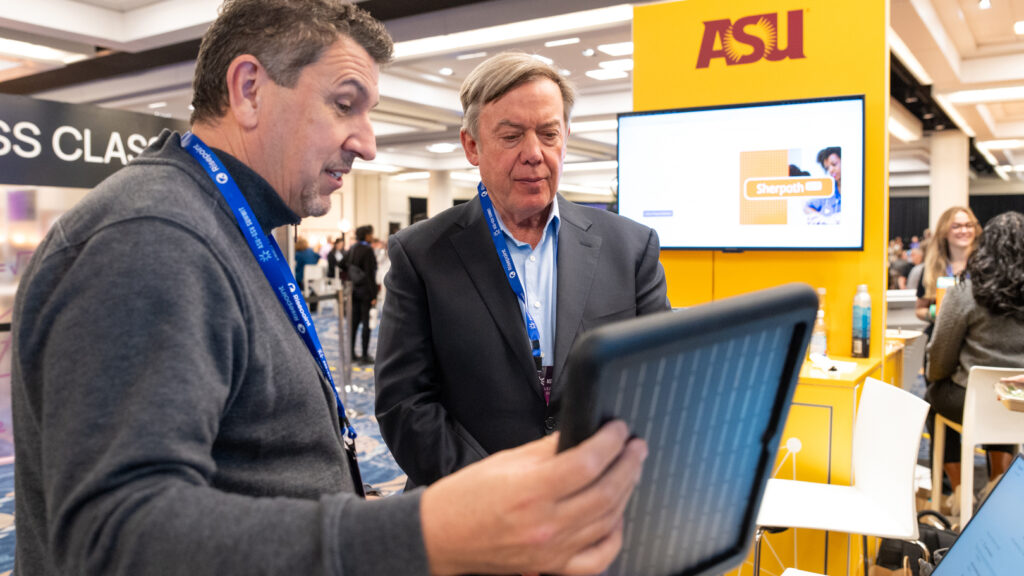
In addition to our work with Next Lab, SolarSPELL has leveraged AI in other ways to advance equity across sectors. ASU graduate students in our project-based Humanitarian Engineering course (EGR 598) have been using Tiny Machine Learning (TinyML) to turn real-time data from the SolarSENSE soil sensor into actionable insights for small-scale farmers. Accessing this kind of data in many countries typically requires paying to send a soil sample to a lab in the capital and waiting weeks to months for a result — at a cost too high for most smallholder farmers and a wait time too long to be useful.
This solar-powered sensor is able to measure soil temperature, moisture, phosphate and salinity, but in order for the data to be useful for farmers, students had to use TinyML to process, analyze and interpret this raw data into four categories: ideal, too dry, needs fertilizer and critical. The sensor then sends these results via offline Wi-Fi directly to a farmer’s smartphone — no internet needed — to help them more efficiently apply water or fertilizer and improve their crop yields.
Internally, our team has been harnessing the power of generative AI to transform our library curation processes. For four semesters in a row, SolarSPELL has been selected to participate in ASU’s AI Innovation Challenge, granting our team licenses to use ChatGPT Edu to shape the future of AI-enabled learning, research and work environments.
After exploring its use in library content translation, quantitative data analysis and metadata creation, we found it to be a game changing tool for generating metadata for resources in our libraries. The metadata developer GPT created by our MLIS intern Sina Muckenfuss has increased both the accuracy and efficiency of our library metadata creation, with student interns reporting that it’s allowed them to curate double the number of resources.
This spring, students have created even more specialized GPTs to generate metadata for our Arabic, agriculture and health library collections. The tools are so useful that the SolarSPELL Health Library Metadata Generator is currently the second most popular GPT for ASU.
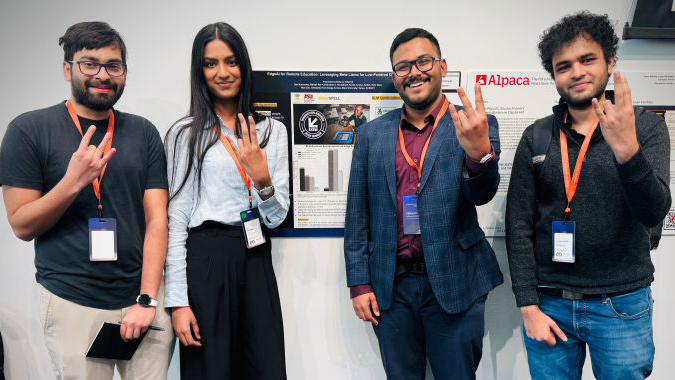
As with any new technology, generative AI brings trade-offs and can be used both to solve challenges and create new problems. The ASU SolarSPELL Initiative is committed to using AI as a tool for good, democratizing the accessibility of information, helping learners everywhere build critical skills and making AI itself more inclusive for the half the world that’s offline.
In April, the Next Lab team had the opportunity to present their work at Meta’s inaugural LlamaCon, showing attendees that it’s not only possible but imperative to make generative AI accessible offline. By training AI on localized knowledge bases and optimizing it for offline use on low-powered hardware, we can bring the power of generative AI to everyone, everywhere, helping them build the skills they need to be full participants in building our common future.
The ASU SolarSPELL Initiative empowers offline communities globally by providing localized libraries and building the 21st century skills that people need to make informed decisions, increase their self-reliance and improve their quality of life.
